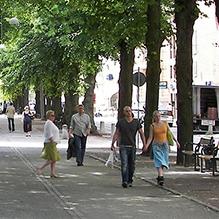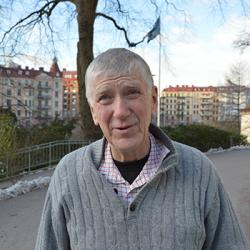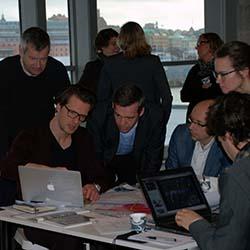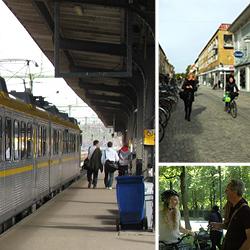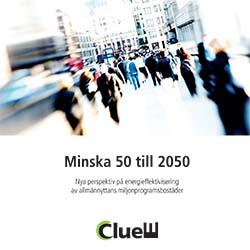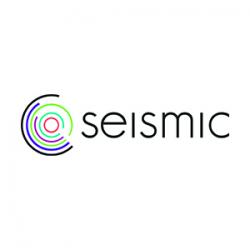
Knowledge about and Approaches to Fair and Socially Sustainable Cities - KAIROS
KAIROS is a transdisciplinary research project with focus on the social dimension of sustainability. The premise of the project is the way in which globalisation, migration and urbanisation characterise our time and place new demands on participation and co-creation.
KAIROS is approaching the end of the project period, and a short film about the project's final results is now available. It is a presentation of the work at the Gothenburg Platform, 4 February 2016 at Folkets Hus, Hammarkullen. The presentation is about six minutes. A final report in English will be available in the autumn 2016.
KAIROS final report was presented in Gothenburg, Sweden, 29 August 2016. Please go to the Swedish page for all information concerning the conference, the reports and the videos.
Birgitta Guevara and Åsa Lorentzi , KAIROS members from the County Administrative Board and the City of Gothenburg, present the project at a workshop in Hammarkullen 4 February 2016 (6:50)
Cities' role in a changing world
The complex societal problems that come with the on-going societal transformation is embodied and impacts on a local level. Cities, and their transnational networks, play an increasingly important role in facing the demands for sustainable development. At the same time, the rapid pace of urbanisation with growing income and health inequalities as a consequence, increases the risk for medium-sized cities of developing into arenas of social conflict. Gothenburg is no exception.
Justice and social sustainability
People's views of and needs for security, development and justice are important for a society’s development. The implications of these concepts is influenced by the local context, and along with the on-going urban transformation, these concepts are changing.
Social sustainability constitutes a political equilibrium point, a "balance point", between the three basic values of security, development and justice. The placing of this equilibrium point is crucial for the strength of social sustainability. This means that issues of conflicting goals and how these issues are managed are fundamental.
"The Great Transformation of Our Time" was presented by project leader Hans Abrahamsson at a conference in Stockholm in 2014. Please also find below (under "Files" a book chapter called "The great transformation of our time - towards just and socially sustainable Scandinavian cities" by Hans Abrahamsson, published in "Social Transformations in Scandinavian Cities - Nordic Perspectives on Urban Marginalisation and Social Sustainability", edited by Erica Righard, Magnus Johansson and Tapio Salonen, published by Nordic Academic Press, 2015.
Participation and co-creation
We cannot avoid issues of conflicting goals, but we need to be aware and find ways how to handle them. This calls for participation and co-creation from the inhabitants.
The project's theoretical framework
The framework describes the project's theoretical and conceptual premises. It defines the concepts of fair and social sustainability as well as the project's aim and research questions.
Subprojects
1. Prospects for civil society's political participation
The first subproject involves mapping and analysing the state of the civil society and what role civil organisations and social movements can play in increasing the political participation of those who live, reside and work in the city.
2. Young people's co-creation and how this can be utilised and reinforced
The second subproject is about young people's co-creation, how it can be strengthened, and how to reinforce young people’s possibilities to influence both their everyday lives and overall society.
3. The dialogues role and shape
The third subproject is about studying the importance of dialogue in expanding democracy and strengthening the society’s ability to identify and respond to global challenges and complex societal problems.
What came next?
What happened after the project was fianilized? Read the story about what came next A change of perspectives can create socially sustainable cities
Publications
Files
-
Synvända 1: Från negativ till positiv säkerhet
-
Synvända 2: Från bostadsbrist till arbete och ett gemensamt samhällsbygge
-
Synvända 3: Från ett renodlat marknadsorienterat tillväxttänkande till en mer hälsosam samhällsutveckling
-
Synvända 4: Från styrning till medskapande i skolan
-
Synvända 5: Från ett arbete fr medboragrna, till ett arbete av och med medborgarna


